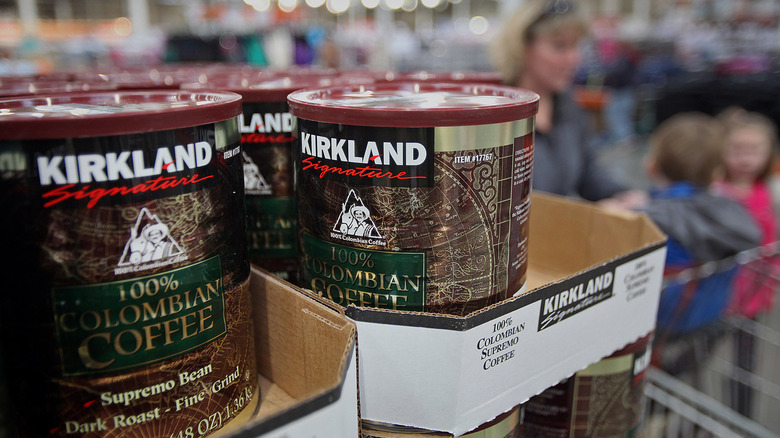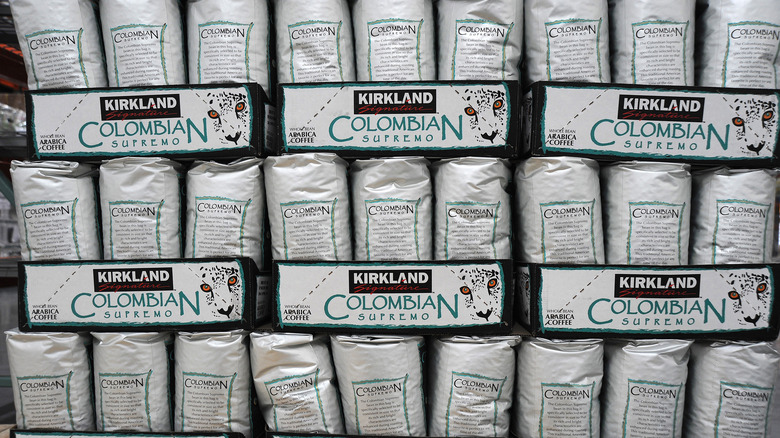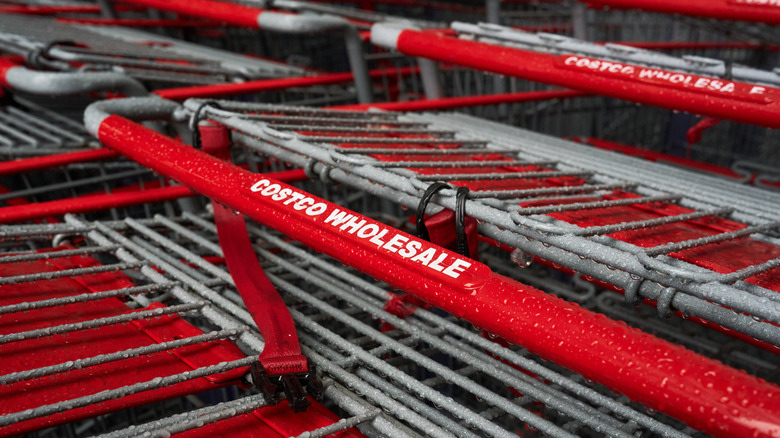Where Does Costco's Kirkland Brand Coffee Come From?
It's easy to imagine a world in which all Kirkland Signature products are created ex nihilo by Costco elves in some faraway warehouse. However, this is not the case. Costco's signature brand, which lauds itself as both high quality and affordable, is actually supplied entirely by outside manufacturers. For example, Duracell produces Kirkland Signature batteries; Reynolds produces Kirkland Signature aluminum foil; Huggies produces Kirkland Signature "sûpreme" diapers; and Alexander Murray produces Kirkland Signature single malt scotch whisky.
Costco's coffee is no different. Kirkland-branded beans from the wholesome bulk retailer are prepared by Starbucks, Rogers Family Co., and other recognizable brands. While buying coffee from small producers is often the best option for conscious consumers looking for an ethical paper trail, Costco is pretty transparent about the origins of its beans. And as it turns out, the company sources coffee in a wide range of taste profiles from all over the globe. Here's what to know about your favorite varieties.
Starbucks and Rogers Family Co. are Kirkland producers
If you're worried about ethical sourcing, know that Kirkland Signature coffee is certified by Fair Trade America. It's primarily made with Arabica beans, the dominant cultivar that comprises just about over half of global coffee production. However, Kirkland coffee producers get their beans from more than one part of the world. Depending on the roast, you might see labels from Colombia, Papua New Guinea, and beyond.
Starbucks produces several types of Kirkland Signature coffee, including its medium-roast House Blend, a popular choice that has received praise for its rich flavor and body, non-acidic profile, and cost. Starbucks also heads up the Kirkland Espresso Blend.
Rogers Family Co. is another major shadow of Kirkland Signature coffee. According to the Sacramento Business Journal, the company partners with 100 or so coffee farms around the world and owns 11 of its own in Panama, Mexico, and Hawaii. It produces Costco's Kirkland Signature Colombian Supremo Coffee — which has been described as having a subtle taste and aroma — in the Andes Mountains.
What's the point of Kirkland?
You might be wondering why Costco sells Kirkland Signature coffee in the first place instead of simply stocking its shelves with Starbucks-labeled beans. As financial consultant David Chang explained to Motley Fool, private labels like Kirkland help companies "control the quality of their products," among other financial incentives, including yielding higher profit margins. Indeed, Kirkland brings in over 30% of Costco's total revenue and has the highest-grossing sales of any consumer packaged goods' company in America.
When Costco introduced Kirkland (or as CNN calls it, "America's weirdest private label") in the mid-1990s, the country was experiencing a "resurgence" of private label products, according to Costco co-founder Jim Sinegal. As the prices of big-brand products grew more expensive, Costco sprung at the chance to draw customers in by offering its own private-label goods at a significant discount. From there, Kirkland Signature was born, giving way to the affordable bags of coffee in your pantry.


